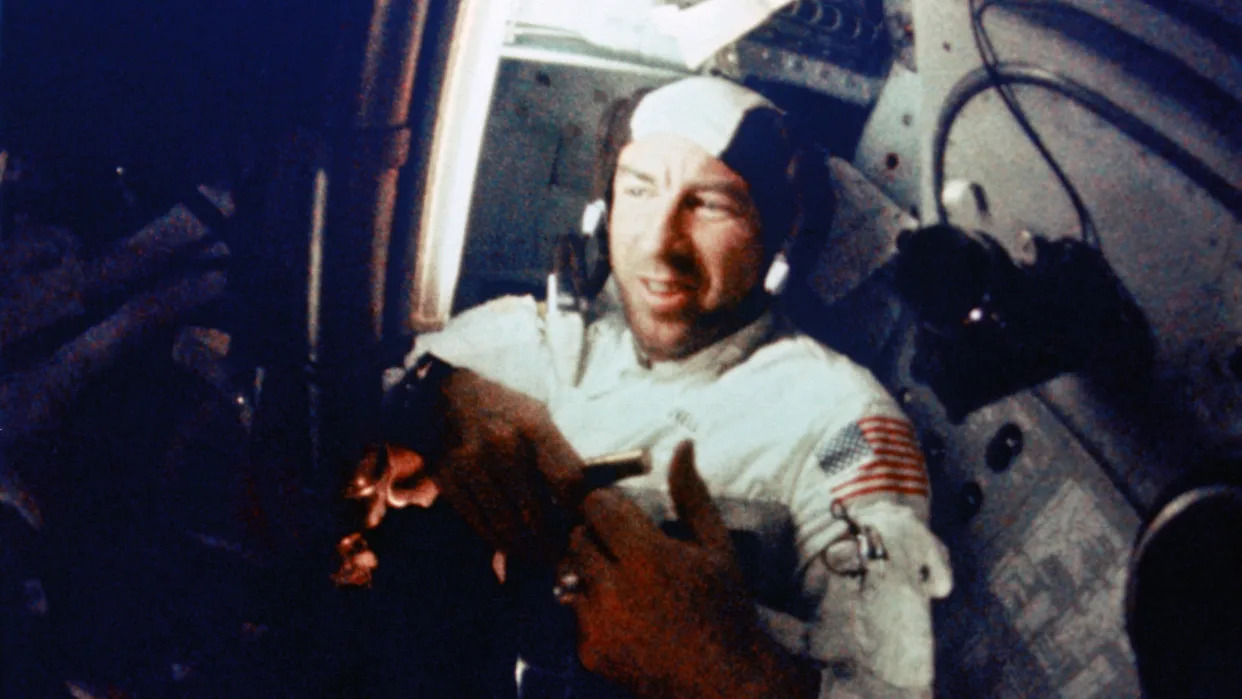Former NASA Astronaut James Lovell, a Figure of Resilience During Apollo 13, Passes Away at 97

James Lovell, the astronaut whose calm leadership during the harrowing Apollo 13 mission ensured the safe return of his crew to Earth, has died. He was 97 years old. NASA confirmed Lovell’s death on Friday, stating that he passed away Thursday in Lake Forest, Illinois.
Lovell’s name became inextricably linked with unwavering composure following the 1970 Apollo 13 mission, an aborted lunar landing that captivated a global audience and represented a pivotal moment in space exploration. The mission, intended to take Lovell to the moon’s surface, was abruptly jeopardized when an oxygen tank exploded approximately 200,000 miles from Earth. “We knew we were in deep, deep trouble,” Lovell later recounted, emphasizing the severity of the situation and their lack of immediate solutions for a safe return.
His experiences were brought to a wider public consciousness through Ron Howard’s acclaimed 1995 film Apollo 13, where Tom Hanks portrayed Lovell. While a memorable line attributed to Hanks in the movie – “Houston, we have a problem” – was a slightly altered version of Lovell’s actual communication: “Houston, we’ve had a problem.” Lovell himself honored Hanks with his presence at the actor’s AFI Lifetime Achievement Award celebration in 2002.
Beyond Apollo 13, Lovell enjoyed a distinguished career spanning four spaceflights – Gemini 7, Gemini 12, Apollo 8, and Apollo 13 – accumulating nearly thirty days in orbit. He became the first individual to journey to the moon twice and previously held the record for cumulative time spent in space according to The Associated Press.
During the groundbreaking Apollo 8 mission in 1968, Lovell and his crew achieved another milestone: becoming the first humans to orbit the Moon. Their Christmas Eve broadcast is often cited as a moment of shared experience during a period of intense national division.
Lovell expressed a poignant regret regarding his career; the missed opportunity to walk on the lunar surface. “The loss of the opportunity to walk on the moon is my one regret,” he stated in an interview years later, although he added that the successful navigation through the crisis provided profound satisfaction.









